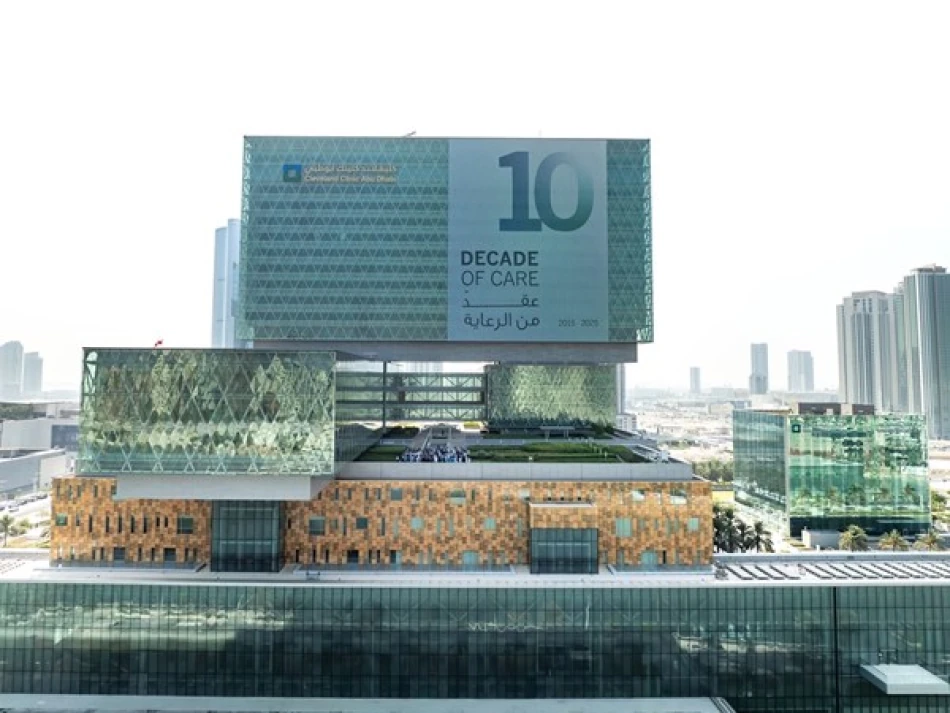
Cleveland Clinic Abu Dhabi Performs Groundbreaking Liver Transplant to Treat Complex Cancer Metastases
UAE Medical Breakthrough: Abu Dhabi Hospital Pioneers Cancer Treatment Through Liver Transplantation
Cleveland Clinic Abu Dhabi has achieved a groundbreaking medical milestone by successfully performing a liver transplant on a 40-year-old Jordanian patient suffering from colorectal cancer metastases that had spread to his liver. This pioneering procedure represents a significant advancement in oncology treatment options across the Middle East, combining organ transplantation with cancer therapy when traditional treatments have been exhausted.
Revolutionary Approach to Advanced Cancer Care
The case exemplifies the evolution of modern medicine, where the boundaries between organ transplantation and oncology continue to blur. The patient had undergone extensive surgical procedures and intensive chemotherapy treatments, yet the cancer repeatedly returned. As Dr. Josep Joba, consultant in abdominal organ transplantation at the hospital's Digestive Disease Institute, explained, chemotherapy often provides only temporary disease control before losing effectiveness and allowing cancer regrowth.
When metastases spread extensively throughout the liver, traditional surgical resection becomes impossible, as removing additional tissue would leave insufficient healthy liver tissue for survival. This creates a medical dead-end that historically offered few options for patients.
Transplant Oncology: An Emerging Medical Frontier
The successful procedure highlights the rapid development of transplant oncology, a specialized field that merges organ transplantation expertise with cancer treatment. This approach offers hope to patients who have exhausted conventional treatment options, providing a realistic chance for long-term survival even in advanced cancer cases.
Global Context and Medical Innovation
This achievement places the UAE alongside leading medical centers worldwide that are pushing the boundaries of what's possible in complex care. The procedure reflects broader trends in precision medicine, where treatment approaches are increasingly tailored to individual patient circumstances rather than following one-size-fits-all protocols.
Regional Healthcare Leadership
Cleveland Clinic Abu Dhabi has established itself as the UAE's first multi-organ transplant center, demonstrating the country's commitment to becoming a regional medical hub. Since launching its transplant program in 2017, the hospital has performed over 900 transplant procedures, including more than 360 liver transplants.
The facility's impressive track record includes over 100 liver transplants performed in 2024 alone—a volume achieved by only a select few healthcare institutions globally. This surgical volume is significant because it directly correlates with improved patient outcomes, as high-volume transplant centers typically demonstrate better success rates and lower complication rates.
Implications for Regional Healthcare
This medical breakthrough has several important implications for the Middle East healthcare landscape. First, it reduces the need for patients to seek complex cancer treatments abroad, keeping medical expertise and resources within the region. Second, it positions the UAE as an attractive destination for medical tourism, particularly for complex oncology cases.
The success also demonstrates how strategic healthcare investments can yield world-class medical capabilities. By combining international expertise with state-of-the-art facilities, the UAE is creating a healthcare ecosystem that rivals established medical centers in North America and Europe.
Future Prospects
The integration of transplant medicine with cancer treatment represents a growing field with significant potential. As immunosuppressive protocols become more sophisticated and surgical techniques continue to advance, more patients with previously untreatable conditions may benefit from similar approaches.
This case sets a precedent for other regional medical centers to develop similar capabilities, potentially transforming cancer care across the Middle East. The success also validates the UAE's broader healthcare strategy of attracting international medical expertise while building indigenous capabilities in specialized care.
Most Viewed News

 Layla Al Mansoori
Layla Al Mansoori






